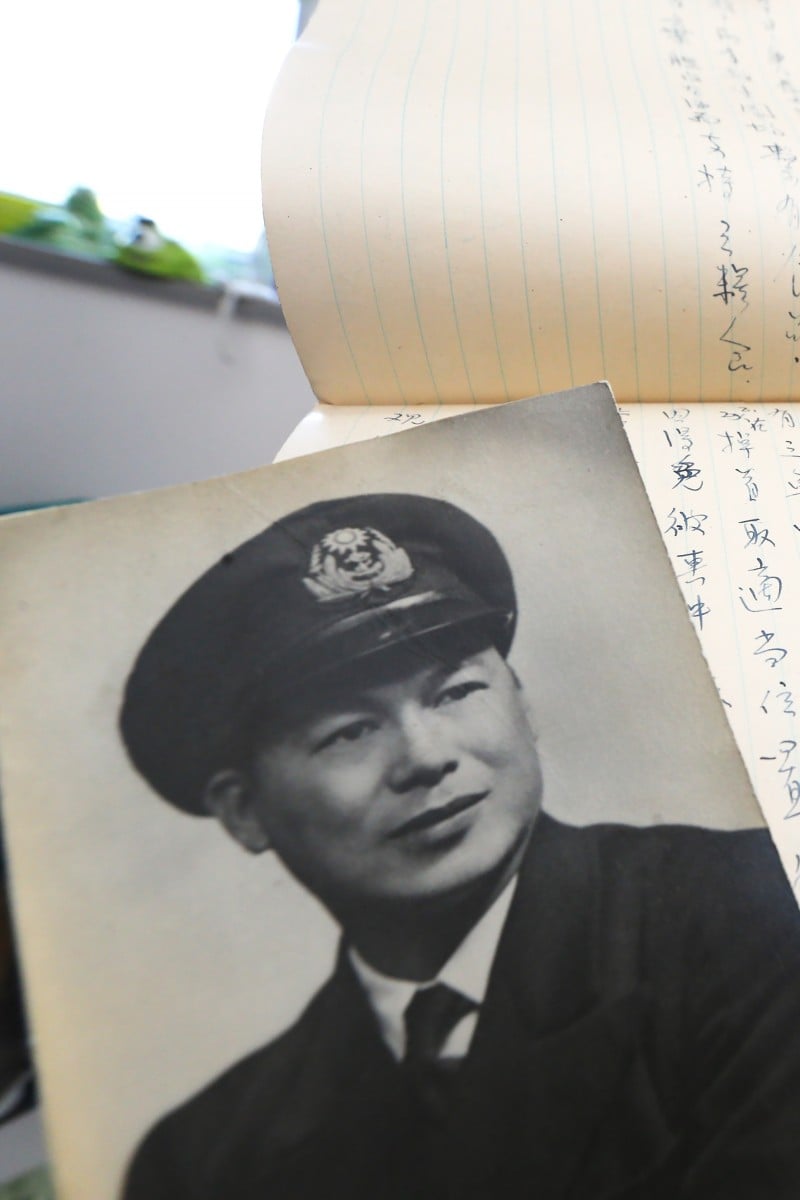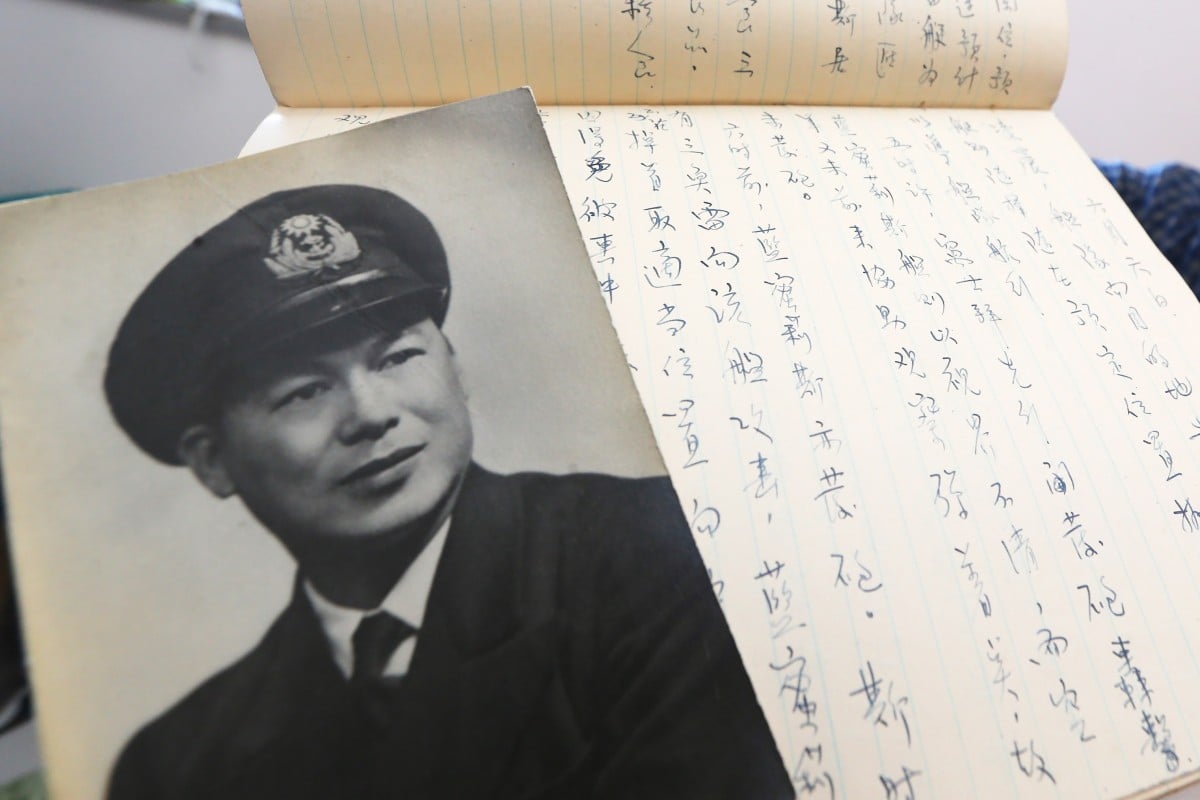
Diary unlike any other: Chinese war hero’s account of D-Day tells a key part of history
The document, which was found in Hong Kong, shows how Chinese naval officers were part of a major European battle in World War II.
 Lam Ping-yu was a Chinese naval officer who took part in the D-Day landings. Photo: SCMP
Lam Ping-yu was a Chinese naval officer who took part in the D-Day landings. Photo: SCMPTen years ago, Angus Hui Chong-yin read a news story about a diary found in a Hong Kong building that was about to be torn down.
The document was from 1944, and it was written in Chinese. It belonged to Lam Ping-yu, a Chinese naval officer sent to Britain for training during World War II.
“I was amazed that someone local had been part of such a significant history event,” Hui said. “I was captivated by Lam and imagined what his life was like.”
At the time, Hui was studying history and culture at the University of Hong Kong (HKU).
He studied the documents with another history lover, John Mak Hiu-fai.
The diary is the only known first-person account from a Chinese officer who took part in the D-Day landings. This historic event was in France during the second world war.
The discovery shows the bravery of Chinese war heros, who are often overlooked in this part of history.
History of family-run tailor shops in Hong Kong’s Tsim Sha Tsui
A Chinese war hero’s D-Day story
In 1911, Lam was born to a Chinese family in Indonesia. After joining China’s navy, he and 23 other Chinese naval officers went to Britain for training during World War II.
This global conflict was from 1939 to 1945. It involved most of the world’s nations divided into two sides – the Allies and the Axis powers.
On June 6, 1944, the Allied forces invaded France, which was controlled by Germany at the time. This was called D-Day, and it was the beginning of the fall of the Axis powers in Europe.
Lam’s diary contains his point of view on the role of Chinese soldiers in the D-Day landings.
After the war ended, Lam went to Hong Kong. In the late 1960s, he moved to Brazil and left behind his diary.
The documents found showed his personal life. An old letters hinted at a woman he may have loved. They also revealed his reflections on war and peace.
“These are all very interesting stories that show Lam’s thoughts and ask us to reflect on the cost of war,” Mak said. He has a master’s degree in public policy and international development from the University of Chicago.
Lam’s story also shows how Hong Kong has long been connected to the rest of the world.
“It shows that ... [Hong Kong] has a front-row seat bearing witness to the making of world history,” Mak said.
Why history matters
Hui remembers how his parents were unsure about his decision to study history in secondary school. But even as a teen, he was sure of his passion.
“History isn’t just something that happened in the past; I love discovering how it matters to me. It affects how we see the world,” said Hui, who is now 30 years old.
Last year, Hui and Mak showed their research at an exhibition, “Lost and Found in Hong Kong: The Unsung Chinese Heroes at D-Day”. They hope the exhibition inspires more historical research.
“Extraordinary stories by ordinary people deserve to be explored and shared,” Hui said.
For the next six months, Hui and Mak will continue their research in the United Kingdom and France.
During their trip, they want to learn more about the role of Chinese soldiers in the war. They hope to connect with more veterans, researchers and people with stories. They also aim to bring home more details about Lam’s journey.
Mak said: “There are a lot of unknowns in every corner waiting to be uncovered. The most important thing is to be curious.”
-
Reflect: What do you know about World War II?
-
Why this story matters: The second world war has affected the relationships of many countries today. Lam Ping-yu’s unique perspective can help people learn more about this global conflict.
account 記述
a written or spoken description of an event, often from a personal point of view
bearing witness 見證
to give proof of the truth of something
extraordinary 非凡
very unusual or impressive; beyond what is expected
hinted at 暗示
to suggest something without saying it directly
navy 海軍
the branch of a country's military that operates at sea, using ships and submarines
overlooked 被忽略
not noticed or given attention
veterans 老兵
people who have served in the military, especially during a war or conflict
Build your vocabulary skills
In this article, who would have been considered a veteran?
